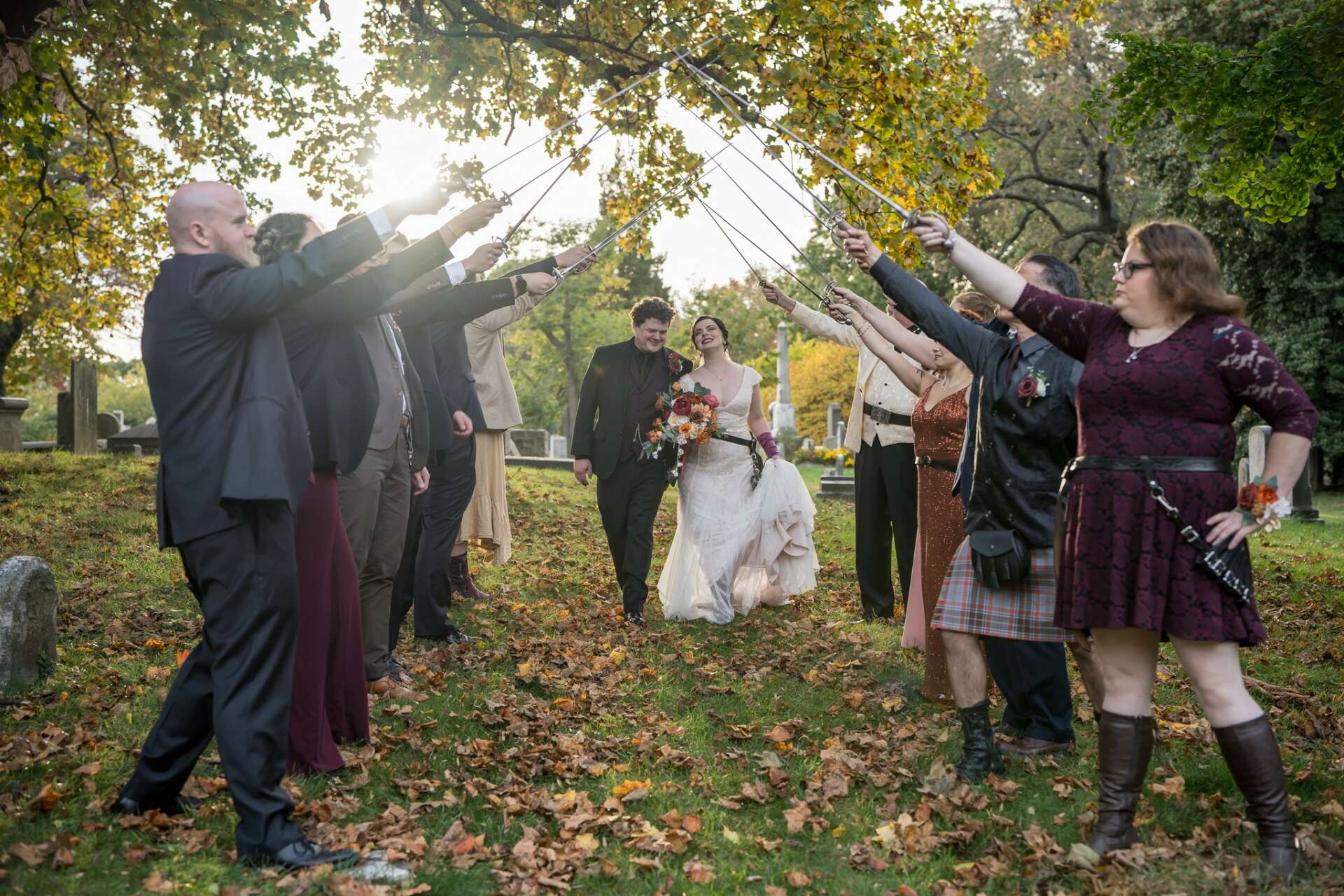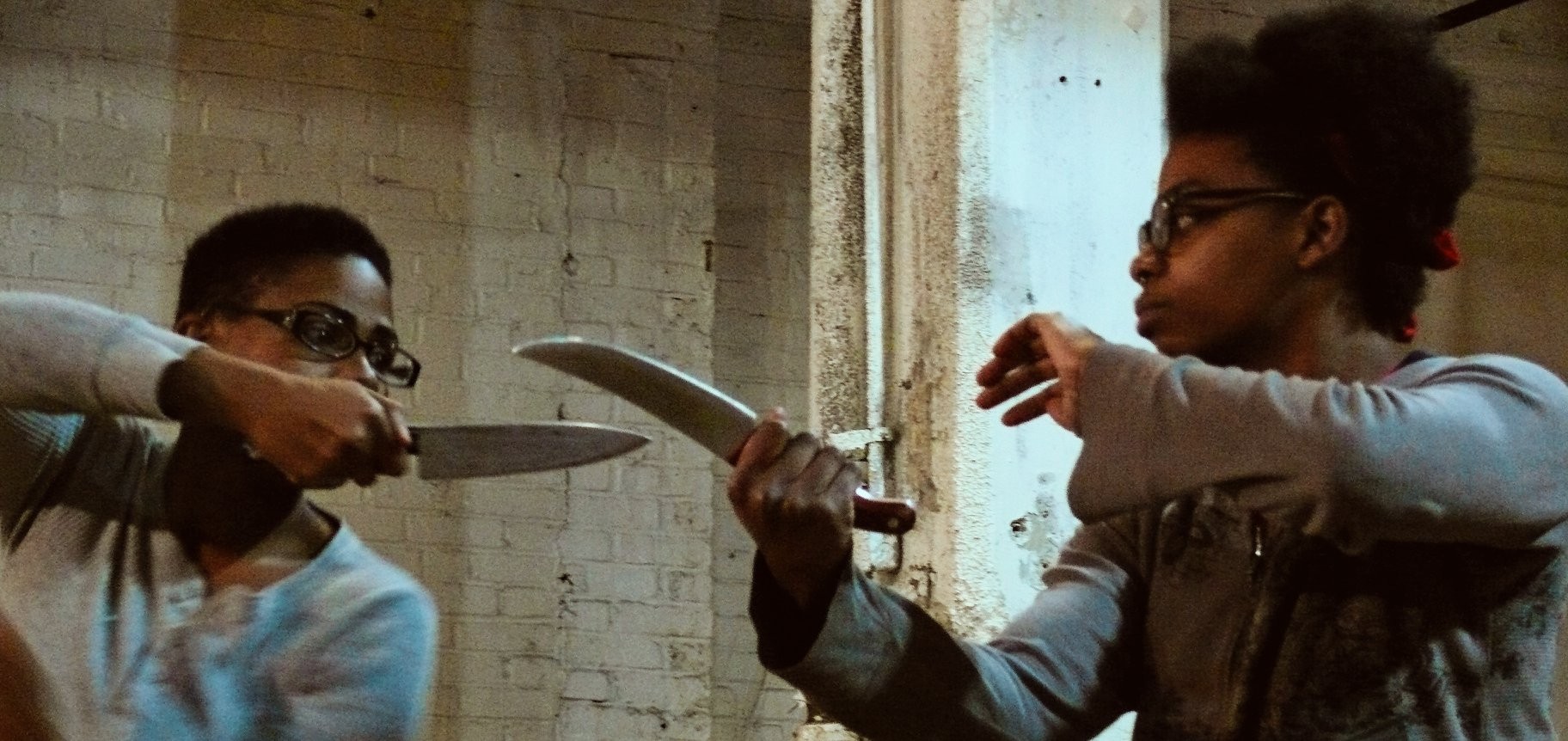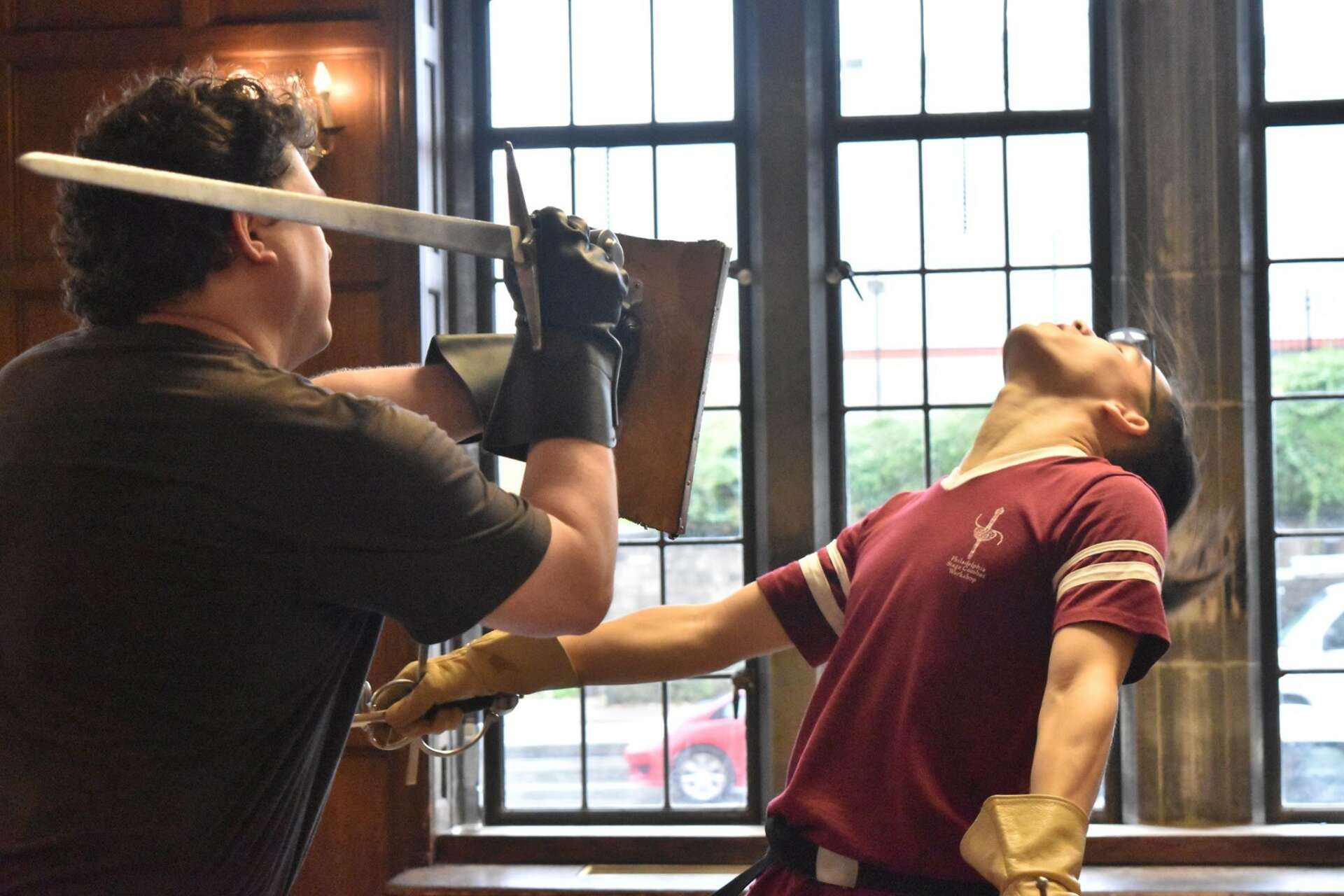We caught up with the brilliant and insightful Brittany Holdahl Donahue a few weeks ago and have shared our conversation below.
Brittany, looking forward to hearing all of your stories today. We’d love to hear about when you first realized that you wanted to pursue a creative path professionally.
My father is a professional baker and composer-musician; my mother was a model, an illustrator, and a ballet dancer. I’m all about challenging tradition, but when you come from such kind and artistic people, one can’t help but want to carry on that torch, too. I give special thanks to my maternal grandparents, Alice Marie and E.J. McKechnie without whom I wouldn’t have been convinced that pursuing Theater was the most pragmatic decision I could make: My grandfather was a real estate attorney and my grandmother was a legal stenographer and parish administrator; very pragmatic people who’d only encouraged the best career choices for friends and family. They happened to decide that Theatre was the best path for me, so I listened and I’m so grateful I did!
Particularly for pursuing a career in Stage Combat: I became interested in the art of Stage Combat and Theatrical Violence during my sophomore year at Temple University. The inciting incident was when I was injured on a student film set and, in turn, injured one of my beloved colleagues when we were instructed to “fight” for multiple takes without any guidance or safety precautions established. The disturbing thing is that we were brutalizing each other with neither informed nor enthusiastic consent; we had viscerally harmed each other. For lack of better knowledge, everyone on set stood by to watch so they could “let art happen.”
At that moment, as a movement artist, aspiring method actor with ethics, and human being with a conscience, I sought to find out a kinder way of portraying visceral acts on stage and in the film that:
A.) Honored the playwrights’ and screenplay writers’ narrative clarity.
B.) It would provide the tools needed to ensure that these portrayals of brutality could be done repeatedly for performances without causing irreparable harm.
C.) Honoring the consent, agency, and autonomy of everyone on set and providing a safe space for audiences to explore life through the stories we tell with our art.
Fortunately, my alma mater has a force of nature on staff in the Society of American Fight Directors and Fight Directors Canada Fight Master, Ian Rose. He continues to offer courses in multiple Stage Combat disciplines at Temple University and independently under the Rose Academy of Armes in Philadelphia. Under his instruction, I’d passed certification in the disciplines of Unarmed, Single Sword, Smallsword, and Rapier and Dagger, earning Actor Combatant status under the SAFD.
I’d met SAFD then-journeyman J. Oliver Donahue through Ian’s classes. Oliver and I developed respect, camaraderie, and friendship that has lasted for over a decade now, and we anticipate many decades more. This respect and companionship have been so profound that we agreed to establish Argent Combat together in December 2017, following Oliver’s instructor certification under the SAFD and the FDC.
We also vowed to create a life together in October 2022 before God, our friends, our family… and fourteen swords crafted by our dear friend, Lewis Shaw.


Brittany, love having you share your insights with us. Before we ask you more questions, maybe you can take a moment to introduce yourself to our readers who might have missed our earlier conversations?
Argent Combat is a Philly-based organization of instructors and choreographers of Stage Combat, a specialized technique in Theater and Film designed to create the illusion of physical combat without causing harm to the performers.
We solve numerous issues by fulfilling our missions:
1.) To encourage safe techniques for performers and enthusiasts.
2.) To adapt styles of historical and modern forms of combat to dynamic theatrical performances.
3.) To provide artists with the tools they need to develop confidence in their autonomy.
4.) To expand Theater’s influence by engendering new students and audiences who enjoy the expression of stories and emotions through theatrical violence.
In furtherance of these goals, Argent Combat routinely offers workshops and ongoing classes in various Stage Combat disciplines all over Philadelphia, and members can attend Regional and National Workshops all over North America. Our Lead Instructor, Oliver; Senior Demo Assistants, Millie Omps and Steve Wei; and other board members can all be spotted at these workshops and regional and national theatres instructing artists in Stage Combat.
Argent Combat is committed to the policy that all students shall have equal access to programs without regard to race, color, creed, religion, national origin, gender identity, sexual orientation, age, marital status, disability, public assistance status, and veteran status. Since our creation in 2017, we have been incredibly vocal about our beliefs in diversity, equity, inclusion, and consent; we’ve critiqued harmful socio-political dynamics on stage and in film production. This has resulted in a boom of beautiful work and diversity within our board, clients, and student body as well as inclusion and open dialogue to address issues in our sibling and parent organizations.
It may sound hackneyed, but I am most proud of our students. They are typically aged 18- 50 and come from various backgrounds yet after every class, we witness them grow an understanding that objectively and subjectively good art comes from a place of compassion. One of our catchphrases is “Friendship through Theatrical Violence” and that is showcased most through their exploration of physical boundaries and beneficially-fulfilling emotional labor in learning this craft as well as the connections our students and board make. Stage Combat is a safe space to explore and set boundaries and our students leave after every class knowing that. This is a triumph for us!
What people need to know about our Theatrical Violence, our colleagues who specialize in Diversity, Equity, Inclusion; and Theatrical Consent and Intimacy professionals: Hiring us is MANDATORY. Stage Combat professionals and our beloved colleagues in these aforementioned professions are not impulse purchases like the equivalent of Chapstick at the drugstore counter, something that can be “squeezed into the production budget” at the eleventh hour. We facilitate the poignancy of objectively and subjectively good art, ensure the narrative clarity of the stories you wish to tell, and empower your cast and crew to explore boundaries needed to create a dynamic, spectacular production in a way that harms none. Producers need to treat us as such and they’ll be handsomely rewarded with a fantastic production in which irrevocable harm is prevented. We aren’t just for flourish and spectacle; we’re here to help you tell your story safely.
Apologies for swinging a hammer on this last point, but the tragic accidents of Brandon Lee, Brendan Fraser, Terry Crews, the students of St Kentigern’s production of “Sweeney Todd,” Alex Schoenauer, Isabelle Adjani, “Spider-Man: Turn Off the Dark,” and Halyna Hutchins on “Rust” apparently weren’t loud enough, so here we are still taking our amps to 11 to advocate for our necessity n productions.


What do you think is the goal or mission that drives your creative journey?
Our primary goals are to ensure that performers’ autonomy, agency, and consent are paramount and that we set in motion the paradigm shift our society needs for it to see that no one should “suffer for art.”
What drives me, personally, is my love for every performer and student. I’ll throw as much as I can down to make sure that they are protected. My heart has broken countless times when I’ve had colleagues share stories of being physically abused as part of a production and I never want to hear another story like those. A career in the performing arts is exactly that: A career, a job. Any other company would be scandalized and people would be aghast if word broke that a managing director advised an employee to punch a co-worker; why on earth is that same situation deemed okay when on a film set or stage instead of in an office? The mission is to make people understand how reprehensible and harmful this mentality is and to protect all artists.


In your view, what can society to do to best support artists, creatives and a thriving creative ecosystem?
Simple: Respect that art is a job and pay artists what they quote you.
Every artist you know- visual artists, performing artists, culinary artists, etc.- faces an unyielding shield wall of prospective clients who approach them with demands or needs only to turn around and be insulted by the invoice. These artists aren’t trying to overpay themselves; commissions take time, effort, transportation, and quality materials which have been meticulously factored into the quote. If anything, many colleagues (myself included) tend to gravitate towards the minimum with little cushioning of the price simply because we have been beating on this shield wall for so long and because integrity is integral to art. You’re already getting the guaranteed best price for your commission. For the artist to cut costs any further will lead to a dip in quality and speed of delivery. Seriously, give us a budget that you’re working with and we will help you build something meaningful and one-of-a-kind that you can treasure, even if it isn’t as big and dramatic as you’d originally envisioned. If you demand an artist to supply something, that artist can and will satisfy the demand; the artist can do it Good and Fast, Fast and Cheap, or Cheap and Good. The quote for the commissioned work reflects the work and materials needed to fulfill your request, so please stop fighting us: We’re on your side.


Contact Info:
- Website: www.argentcombat.com
- Instagram: @argentcombat
- Facebook: @argentcombat
- Twitter: @argentcombat
- Other: argentcombat.eventbrite.com
Image Credits
Ashley Smith, Kenny Nguyen, Dan Horan


